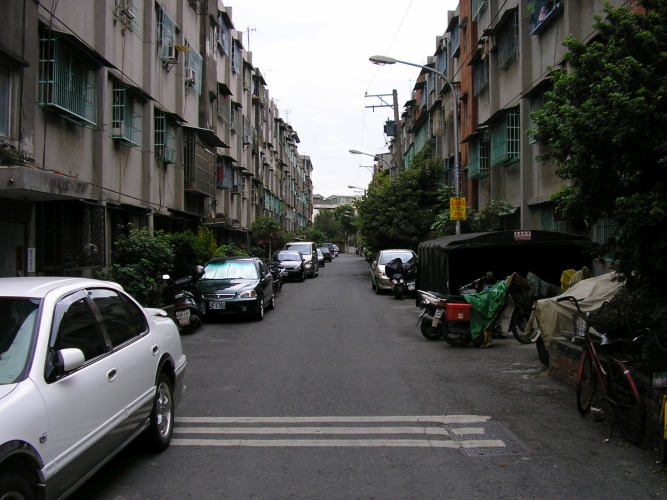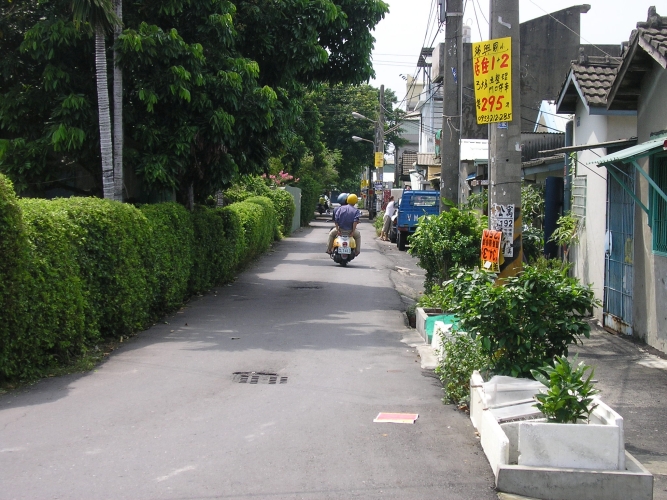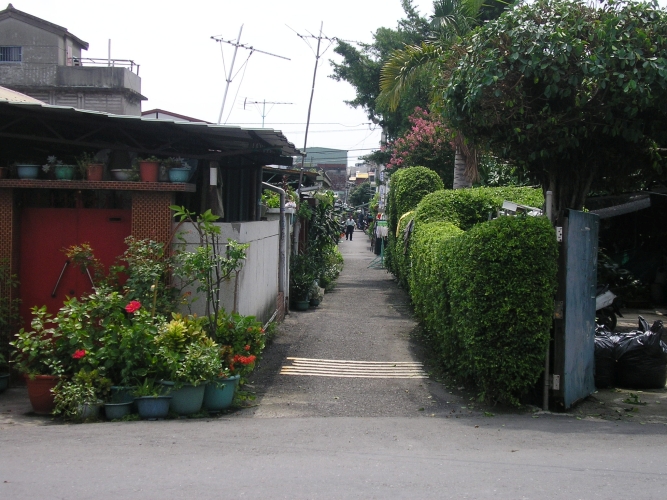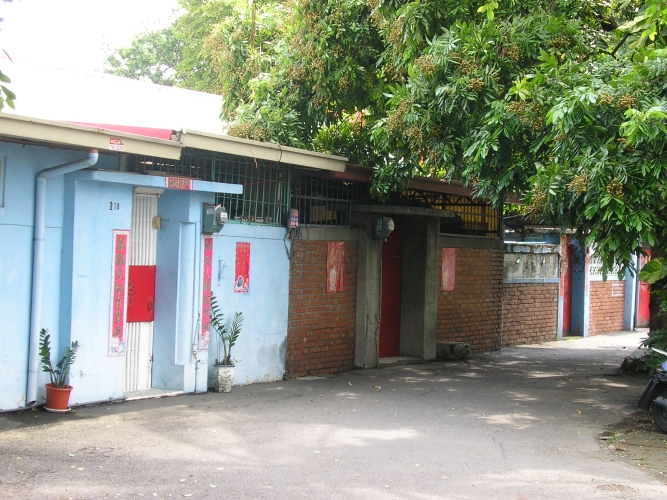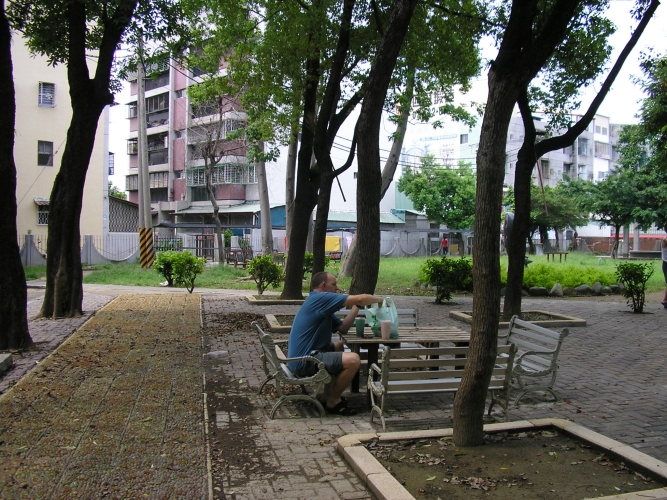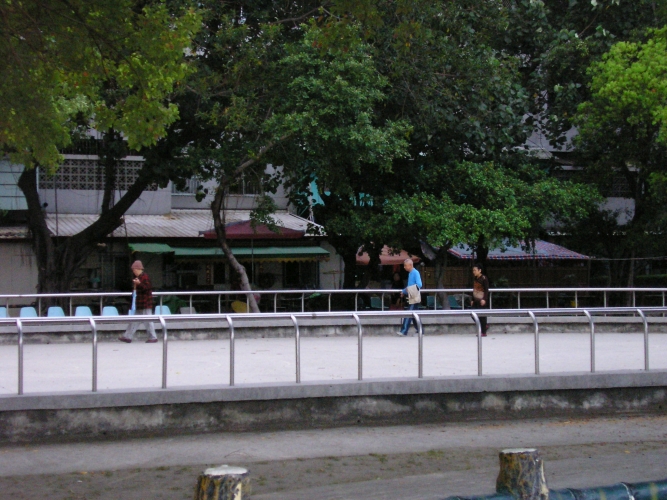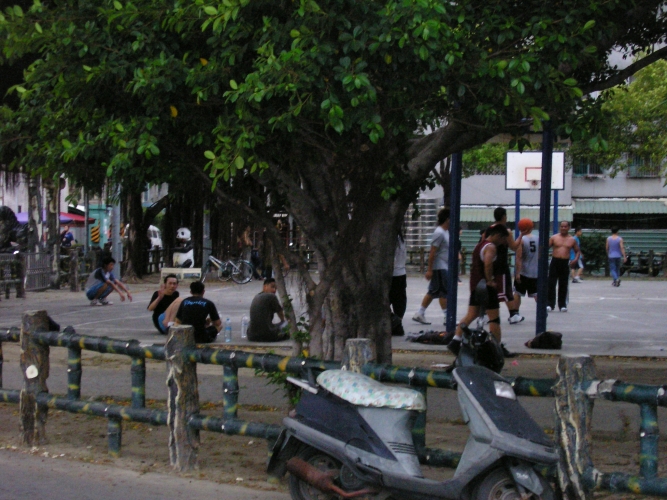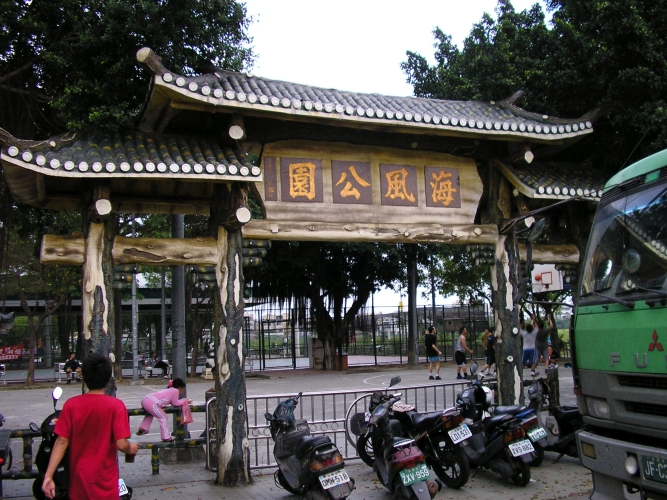FRIDAY, 13 FEBRUARY 2004
In 2000, I didn’t just want to be “Brand” who could play guitar or piano – I wanted to be “Brand the Musician”. Critically low self-esteem fuelled a desperate attempt to develop an aspect of a social identity that would have made me feel good about myself.
Unfortunately, my ambitions were hopelessly unrealistic. I wanted to play guitar like John Williams (the classical guitarist, not the composer) in a few months, and play piano at least with both hands within the same period. Inevitable failure plunged me into the most wretched frame of mind I had experienced up until that point in Taiwan. (My work situation added fuel to the fire. I taught most of my classes at an elementary school where half the 7-year-olds ignored me during the class, a quarter paid attention half of the time, and the other quarter could barely wait for me to go outside after the class so they could throw dirt at me.)
The musician issue was of course not about the guitar or the piano; it was about how I saw myself, how my social identity and status were marked in the community, and how I had wanted it to be.
To what community am I referring? In 2000, a flood of other South Africans arrived in Kaohsiung almost overnight. I was again, out of the blue, confronted with the question of who I was – not only in a broad existential sense but among people of my own age, from my own country, who spoke my language.
My love for music, and the esteem and respect that I had always had for people who could play musical instruments infused me with the idea from the middle of that year that the label of “Musician” was by far the most ideal for my needs. A single track on the Pearl Jam album, No Code did not help prevent this fatal view. I was so mesmerised by it that within a week of buying the album I went out to get myself an electric guitar.
* * *
If I never went to Korea, and therefore never came to Taiwan … if I had stayed in Pretoria from April 1996 onwards (hopefully not for longer than three months in my sister’s living room), I would have been compelled to define my identity as an adult in the more familiar habitat of my own country, among people of my own culture, who spoke my language. It would probably have included factors like my undesirable socio-economic status, and I might have taken other measures to feel better about myself.
What happened, however, was that I ended up in the double alienation of Korea – as Westerner in a city of 800,000 Koreans, and the only South African and Afrikaans-speaking person in the foreign community. My process of identity formation once again entered a period of shock – like the socio-economic shock of being downgraded from “middle class” to “poor white” in 1985.
Would I have become a “different person” if I had gotten a job in Pretoria in June 1996? Of course, but I also believe that the core of a person’s personality is to a great extent fixed and merely responds to different environmental factors. “Korea Brand” was the result of 22 months in that country and the double alienation it had entailed. “Pretoria Brand” never developed beyond the initial three months.
Would “Pretoria Brand” still have become a “writer”? It’s possible. The creative aspect of my identity had after all already started developing by 1994 in Stellenbosch, and it was connected to previous times when the potential for this building block of identity had also manifested itself.
What is important here is credible identity. I was never a credible “Brand the Musician”. I knew this, and tried desperately to develop credibility in a ridiculously short period.
Is “Brand the Writer” a credible identity? Yes, and not because I think my text it worthy of being published or read. What is important – and I have mentioned this a few times before, is that I write, that I write quite often, and that I have written enough by now to have credibility in my own eyes as a writer.
* * *
I was confronted in Korea with an environment where, unlike 1995 and early ‘96, I had to identify myself to a large group of my contemporaries. I was unsure how to do it. I was unsure who “Brand Smit” was, and what it meant to be “Brand Smit”. I searched for clues, answers … and where does one seek for clues and answers other than the ground where your umbilical cord is buried, so to speak?
In my case, I identified middle-class suburbia as ground zero. What stared me in the face, however, was the failure – personally and that of my family – to fit in and be accepted by the place that had to yield clues about who and what I was. The view of myself as a descendant of a source that had always threatened to abort me made me see the source in an extremely negative light, to put it mildly.
The most ideal alternative to middle-class suburbia in developing my identity could have been the Christian religion. One would almost like to say that my whole identity crisis could have been decided then and there. Problem was, since 1993, I no longer viewed the Church, as I had known and respected it from childhood, as a credible institution. The close relationship between the Afrikaner middle class and the branch of the Christian religion with which I was most familiar further alienated me from both.
To summarise:
1. I was confronted in Korea with the need to identify myself to dozens of my contemporaries; many more people, and on a more personal level than in 1995 and early ‘96.
2. I was looking for answers and clues in the place where my roots lie. I had identified this place as middle-class suburbia. I was aware of the fact that this place (environment and society, in the broad sense of the word) did not want to accept my and my family’s roots – or at least, could not accept our roots according to qualifications that any community certainly has a right to expect potential members to meet. What is relevant here is not so much the standards that middle-class suburbia sets regarding financial status, but that this particular environment, with its particular culture, values and ideas, could not serve me as a credible source of identity.
3. The most ideal alternative could have been the Christian religion, but from 1993 onwards I no longer regarded it as a credible source of identity for me because of my increasing lack of belief in the Traditions of the Established Church.
4. Conclusion? I was in trouble. I had to dig deeper for clues and ideas about who and what I was, who and what I wanted to be, and in what environment I wanted to be this person.
* * *
In 2000 I was confronted again, this time in Taiwan, with people to whom I had to identify myself after once again functioning for a year in relatively obscure anonymity – where the most basic information about my person was good enough.
As I have already mentioned, being a “Musician” was in my opinion the most ideal pre-packaged and pre-approved identity I could think of in my uncertainty and anxiety about my own value, but one for which I could not build up sufficient credibility in the short time I needed to.
It would thus appear that participation and membership in a new community – where you’d have to identify yourself in full colour and detail – may lead to increased introspection and renewed definition of identity or the development of new aspects of identity if you are not satisfied with who you are in that community.
It also follows that the identity, or aspects of identity, that you would try to develop would correspond with what is highly regarded by the community of which you want to be a member.
The alternative to acceptance and membership in a community is obscure anonymity – where it is not necessary for who and what you are to be accepted by other people in your community, as long as you keep yourself busy on your own, and you cause no trouble.
______________________
